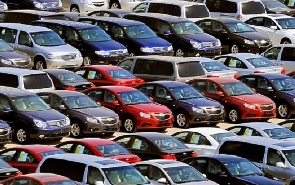The Concerned Spare Parts Dealers Association has given the government up to the end of September to scrap the 35 per cent import duty on spare parts and automobiles scheduled to take effect from 1 November 2020.
The association made the call in a statement.
According to the group, “the increment will negatively affect importers and local businesses such as mechanics, sprayers, key programmers, welders among other artisans.”
The association continued: “We are giving the government up to the end of September to scrap the tax or we will advise ourselves.”
It also said that “on the ban of importation of accident and salvaged motor vehicles,” it has already declared its stance that it is not “in support” of the government’s decision.
The association further urged the government to “come clear as to whether or not it's been cancelled or postponed.”
It also emphasised that, as an association, the welfare of its members is a priority and is, therefore, asking the government to, “within the next two weeks, scrap the 35% tax increment on importation of salvaged vehicles.”
Ghana banned the importation of cars older than 10 years to encourage international companies including Volkswagen AG and Nissan Motor Co. to set up local plants in the West African country.
The new law also provides import-duty rebates for companies that manufacture or assemble cars in Ghana, according to the act of parliament obtained Thursday by Bloomberg.
The embargo will take effect six months after the manufacturing or assembling of new vehicles in Ghana begin under a special government program meant to draw investment.
Volkswagen, Nissan, Toyota Motor Corp., Suzuki Motor Corp. and Renault SA are among automakers weighing the local assembly of vehicles in a country where used cars make up about 70% of vehicle imports. Ghana is seeking to become a car-manufacturing hub for West Africa, a region with more than 380 million people.
The import restrictions could cost the government as much as $143 million in customs revenue in the first three years after implementation, according to parliamentary documents. Used-car sellers offer more affordable deals in a country where auto loans are rare.
The law, signed by President Nana Akufo-Addo on April 30, also bans the importation of cars which have been involved in accidents, which dealers bring in and repair to provide even cheaper options to consumers.
The ban on these will take effect from October, regardless of their date of manufacture.
Business News of Tuesday, 15 September 2020
Source: classfmonline.com













